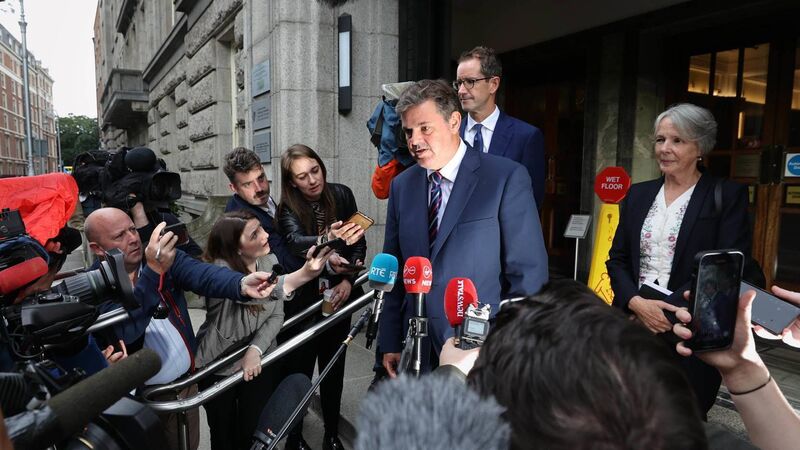Elaine Loughlin: As RTÉ debacle rumbles on, what other bombshells are passing us by?

Incoming RTÉ director general Kevin Bakhurst, interim deputy director general Adrian Lynch, and board chair Siun Ni Raghallaigh after a meeting with Arts and Media Minister Catherine Martin. Picture: Liam McBurney/PA Wire















